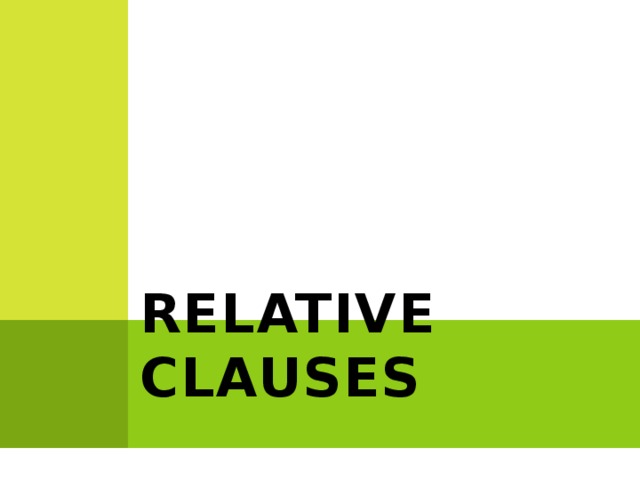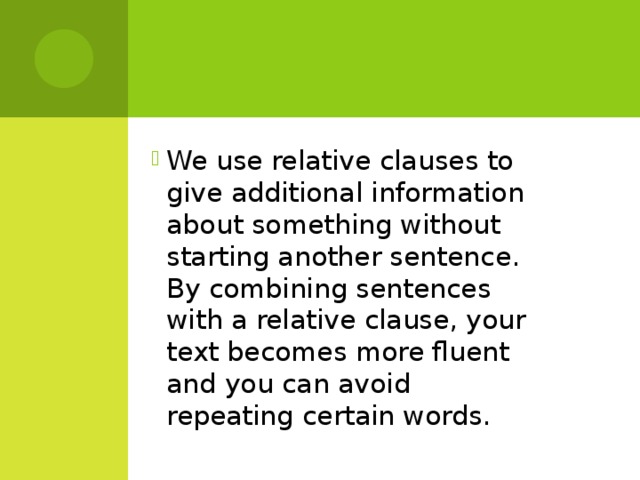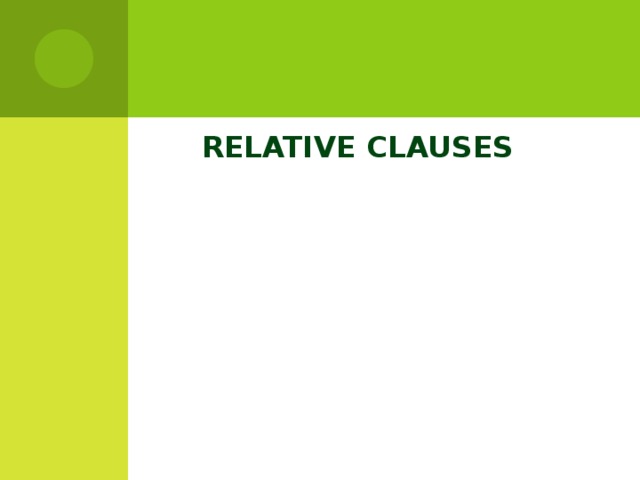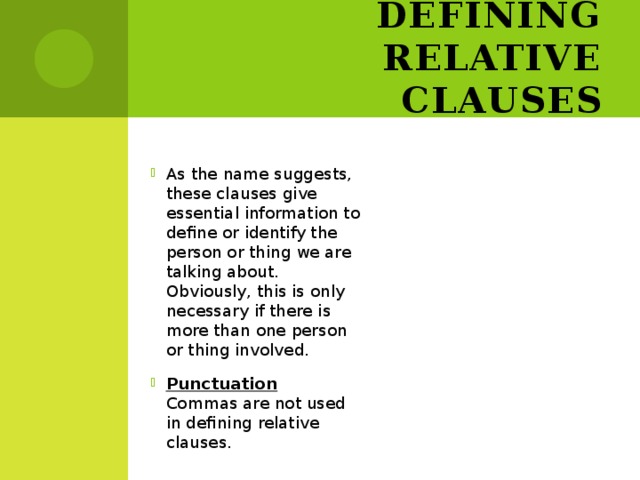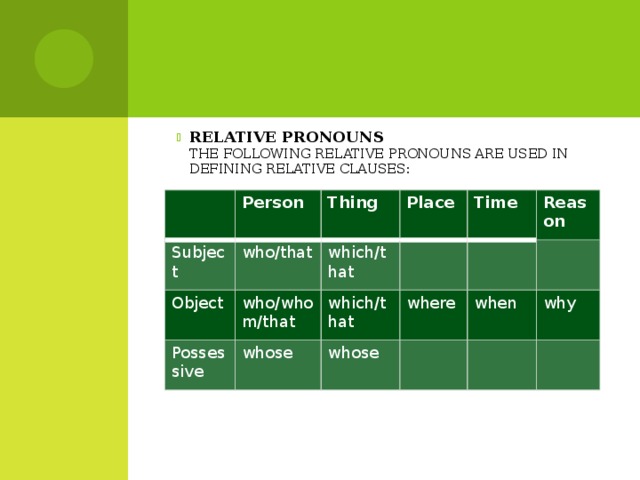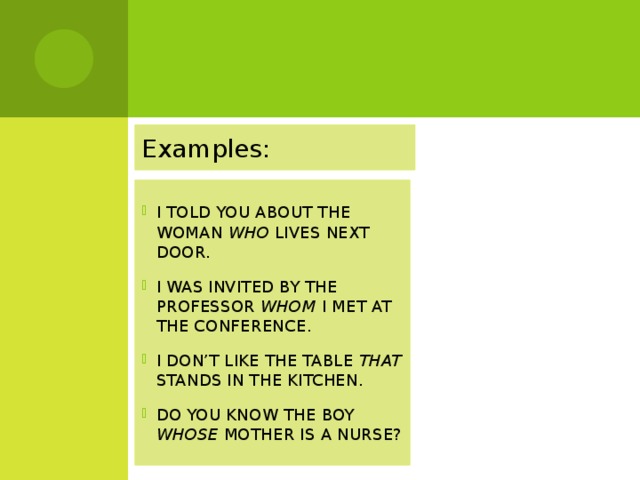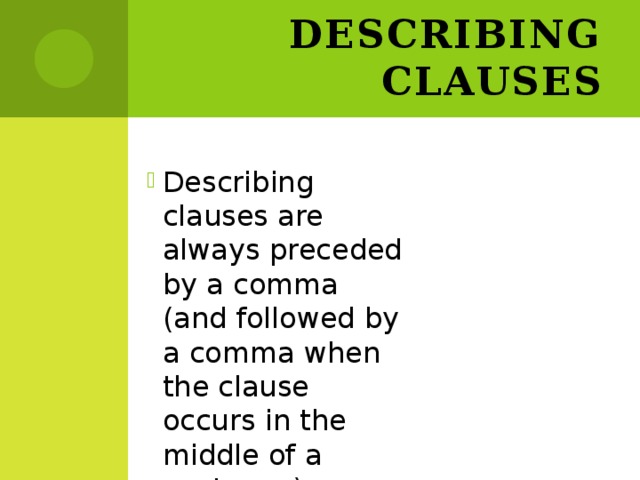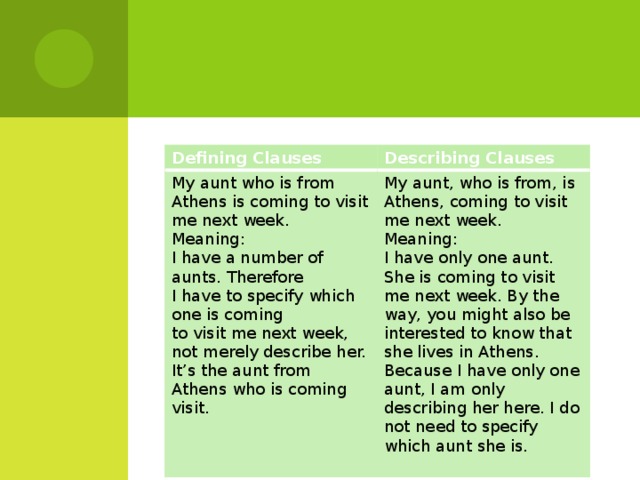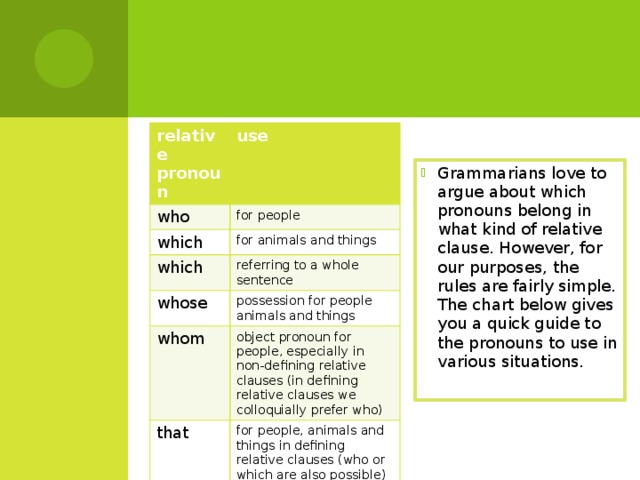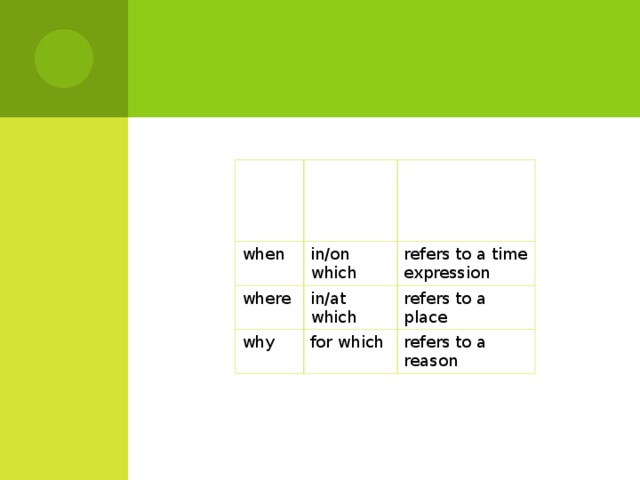Создайте Ваш сайт учителя Видеоуроки Олимпиады Вебинары для учителей
Презентация на тему RELATIVE CLAUSES
RELATIVE CLAUSES
We use relative clauses to give additional information about something without starting another sentence. By combining sentences with a relative clause, your text becomes more fluent and you can avoid repeating certain words.
RELATIVE CLAUSES
-Describing
-Defining
Defining relative clauses
As the name suggests, these clauses give essential information to define or identify the person or thing we are talking about. Obviously, this is only necessary if there is more than one person or thing involved.
PunctuationCommas are not used in defining relative clauses.
Examples:
I told you about the woman who lives next door.
I was invited by the professor whom I met at the conference.
I don’t like the table that stands in the kitchen.
Do you know the boy whose mother is a nurse?
Describing Clauses
Describing clauses are always preceded by a comma (and followed by a comma when the clause occurs in the middle of a sentence).
-Defining Clauses
My aunt who is from Athens is coming to visit me next week.
Meaning:
I have a number of aunts. Therefore
I have to specify which one is coming
to visit me next week, not merely describe her. It’s the aunt from Athens who is coming visit.
-Describing Clauses
My aunt, who is from, is Athens, coming to visit me next week.
Meaning:
I have only one aunt. She is coming to visit me next week. By the way, you might also be interested to know that she lives in Athens. Because I have only one aunt, I am only describing her here. I do not need to specify which aunt she is.
.
Вы уже знаете о суперспособностях современного учителя?
Тратить минимум сил на подготовку и проведение уроков.
Быстро и объективно проверять знания учащихся.
Сделать изучение нового материала максимально понятным.
Избавить себя от подбора заданий и их проверки после уроков.
Наладить дисциплину на своих уроках.
Получить возможность работать творчески.
Просмотр содержимого документа
«Презентация на тему RELATIVE CLAUSES»
Полезное для учителя
Распродажа видеоуроков!
1860 руб.
2660 руб.
1880 руб.
2690 руб.
1970 руб.
2820 руб.
2160 руб.
3080 руб.
ПОЛУЧИТЕ СВИДЕТЕЛЬСТВО МГНОВЕННО
* Свидетельство о публикации выдается БЕСПЛАТНО, СРАЗУ же после добавления Вами Вашей работы на сайт
Удобный поиск материалов для учителей
Проверка свидетельства
